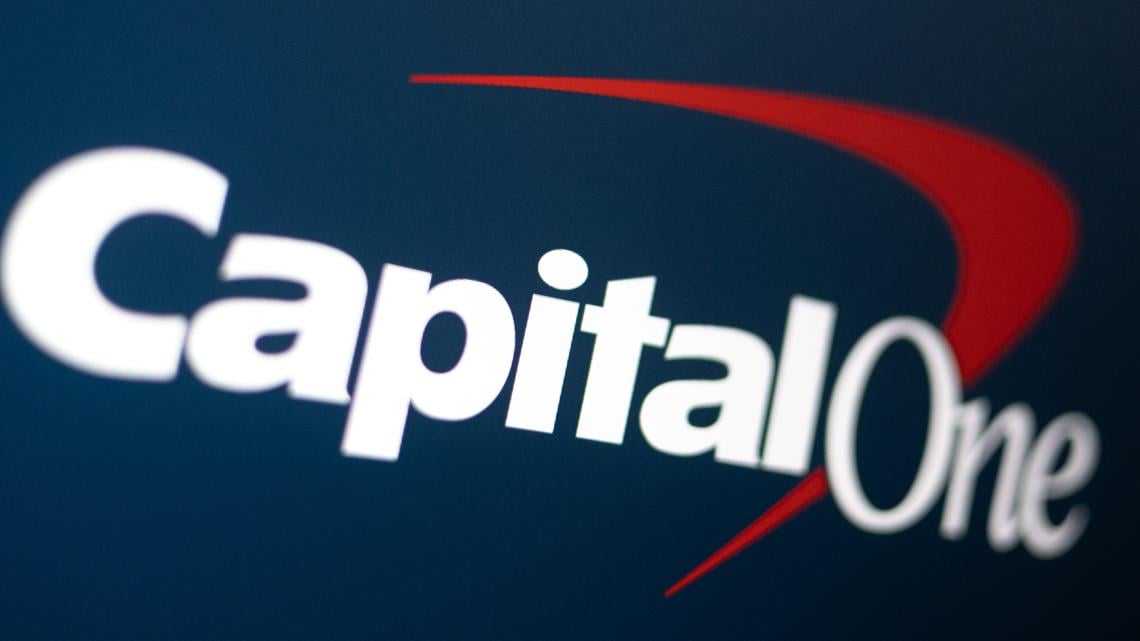Does Capital One Allow Crypto Purchases? Inside the Banking Industry’s Quiet Shift Toward Digital Assets


KEY TAKEAWAYS
- Capital One currently prohibits using its credit and debit cards for cryptocurrency purchases.
- The restriction stems from fraud, volatility, and regulatory risk concerns.
- Customers can still purchase crypto via ACH transfers, linked bank accounts, or other payment methods.
- Banks are cautiously exploring blockchain tech and stablecoins while avoiding direct crypto exposure.
- Capital One’s acquisition of Discover strengthens its payment infrastructure, signaling readiness for future digital finance integration.
In recent years, have surged from niche digital curiosities to mainstream financial instruments, attracting the attention of investors, regulators, and financial institutions alike.
Banks and credit card companies have found themselves at a crossroads: how to navigate the rapidly evolving digital asset landscape while managing risk and regulatory scrutiny.
Capital One, one of America’s largest banks, serves as a revealing case study to understand the banking industry’s cautious yet evolving stance toward allowing cryptocurrency purchases.
Capital One’s Current Policy on Crypto Purchases
As of 2025, Capital One does not permit its credit or debit cardholders to use their cards directly for purchasing cryptocurrencies. This ban extends to using Capital One cards to purchase crypto on platforms, platforms, or peer-to-peer services.
The bank’s decision is primarily rooted in concerns over the “limited mainstream acceptance” of cryptocurrencies, coupled with the “elevated risks of fraud, loss, and volatility” inherent in digital asset markets.
This conservative stance aligns with similar policies by other major banks such as TD Bank, PNC, and Bank of America, which also restrict or block card-based crypto purchases, citing consumer protection and fraud prevention reasons.
Capital One’s public communications confirm its ongoing monitoring of cryptocurrency developments, suggesting the possibility of revisiting this policy as the market matures and regulatory clarity improves.
Why Capital One’s Position Matters
has a mixed history with cryptocurrency transactions. In the late 2010s, the bank publicly blocked at least some credit-card crypto purchases, citing elevated fraud risk, volatility, and limited mainstream acceptance.
At the time, the bank said it would monitor the market and revise policy as conditions evolved. That cautious posture mirrors many large banks that prioritized consumer protection and fraud control over enabling purchases.
More recently, Capital One itself has publicly studied crypto and payments trends, finding substantial consumer interest in using crypto for purchases, and has filed blockchain-related patents and research initiatives, indicating the bank is watching the sector closely, even if it hasn’t rolled out a “purchase crypto” button of its own.
That combination of strong customer demand but institutional caution explains why Capital One’s most visible public stance is conservative, even while the bank explores blockchain tech internally.
Implications of the Policy for Capital One Customers
For Capital One customers eager to invest in cryptocurrencies, the restriction means they must turn to indirect methods. Customers can still purchase cryptocurrencies by:
- Linking their Capital One bank accounts or cards to third-party crypto platforms or wallets that accept them, although transaction approval depends on Capital One’s discretionary limits.
- Using alternative payment methods such as bank transfers, ACH payments, or non-Capital One cards that support crypto purchases.
- Engaging in transactions outside the direct use of Capital One payment products.
While these routes add steps and potential friction, they preserve access to digital assets for customers without violating Capital One’s official crypto purchase policies.
Capital One’s Strategic Moves in Financial Services
Interestingly, while Capital One restricts direct crypto purchases, the bank is actively evolving its business model through significant strategic initiatives.
In 2025, Capital One completed its acquisition of , a move intended to bolster its payments infrastructure and expand its market presence. This acquisition signals Capital One’s commitment to innovation and competitive positioning in premium credit card markets, even as it remains cautious on crypto integration.
Capital One is migrating its debit operations to the Discover network, viewking to leverage cost synergies and enhance customer experience. Such moves showcase how Capital One is preparing for a landscape where digital payments, fintech innovations, and potentially digital assets coexist, even if direct crypto purchasing is not yet embraced.
Banking Industry’s Quiet Shift Toward Digital Assets
Capital One’s approach epitomizes a broader industry trend. Many traditional banks have been cautious in embracing cryptocurrencies directly due to regulatory uncertainties, fraud risks, and volatile price behavior. Nevertheless, a quiet shift is underway, characterized by:
- Increased crypto custody services and partnerships with fintech firms, allowing indirect crypto exposure.
- Pilot programs exploring blockchain for payment settlements, identity verification, and compliance.
- Growing acceptance of and tokenized assets aligned with regulatory guidelines.
- Development of crypto-friendly credit card rewards and incentives tied to digital assets.
This incremental and risk-aware strategy allows banks to maintain regulatory compliance while positioning themselves to capitalize on future digital asset adoption once risks and frameworks solidify.
Will Capital One Change Its Crypto Stance?
Capital One has stated it “continues to closely monitor developments in cryptocurrency markets and platforms” and will “regularly evaluate” its ban on using its cards for crypto purchases. Several factors could influence a policy shift:
- Regulatory Carity: Robust federal guidelines on crypto could mitigate compliance risks.
- Market Maturation: Greater institutional involvement and asset stability could reduce fraud and volatility concerns.
- Competitive Pressure: Customer demand and peer bank policies might incentivize adoption.
- Technological integration: Advancements in secure transaction processing and fraud detection.
Practical Advice for Capital One Customers Who Want to purchase Crypto
There are a few significant steps and precautions to keep in mind as a Capital One customer interested in purchaseing cryptocurrency
- Use ACH transfers from your Capital One bank account to a reputable, FinCEN-registered platform for the simplest, lowest-cost route.
- Avoid using credit to purchase crypto unless you accept cash-advance fees and immediate interest. Check whether the transaction will be processed as a cash advance.
- Confirm card acceptance before attempting a purchase. Call Capital One if you’re unsure whether a specific merchant will be blocked or declined. This can prevent unnecessary declines or security holds.
- Look for bank-backed products: over time, some banks have added rewards or partner cards that give crypto rewards (via platform partnerships); these are securer alternatives to direct crypto purchases on credit.
Should these factors align, Capital One may revisit its policy to enable direct crypto purchases or expanded crypto-related services, aligning with a future where digital assets are embedded seamlessly in banking products.
Capital One’s Crypto Caution: Balancing Innovation with Risk Management
Capital One currently does not allow direct cryptocurrency purchases using its credit or debit cards due to concerns over fraud risk, , and regulatory uncertainty.
However, the bank’s broader strategic investments and cautious monitoring of the crypto ecosystem reflect a nuanced approach common in the banking industry, a balance of caution and readiness to adapt.
As the intersection of traditional finance and digital assets continues to evolve, Capital One’s policies may shift in response to changing market conditions and regulatory landscapes.
For consumers and industry watchers alike, Capital One’s stance offers a clear window into how major financial institutions are navigating the ongoing digital asset revolution, careful, adaptive, and forward-looking.
FAQ
Can I purchase cryptocurrency directly with my Capital One credit or debit card?
No. Capital One currently blocks direct crypto purchases using its cards due to concerns over fraud, volatility, and regulatory risks.
Why does Capital One restrict crypto transactions?
The bank cites limited mainstream acceptance of crypto, high fraud potential, and uncertain regulations as key reasons for its restrictive policy.
Are there any indirect ways to purchase crypto using Capital One?
Yes. You can use ACH transfers from your Capital One bank account to a regulated platform or use third-party payment platforms that accept Capital One-linked accounts.
Will Capital One ever allow crypto purchases in the future?
Possibly. Capital One has stated it will “continue to monitor crypto market developments” and may revise its stance as regulation and market stability improve.
Does Capital One support any crypto-related services?
While it restricts direct purchases, the bank explores blockchain research, patents, and fintech innovation, suggesting openness to future digital asset integration.
How does Capital One’s policy compare to other major banks?
It aligns with banks like TD Bank, PNC, and Bank of America, which also restrict card-based crypto purchases for risk management reasons.
What should I do if my crypto purchase is declined?
Contact Capital One’s customer service to confirm if the merchant or platform is blocked. Consider using a bank transfer or a non–Capital One card that permits crypto transactions.






